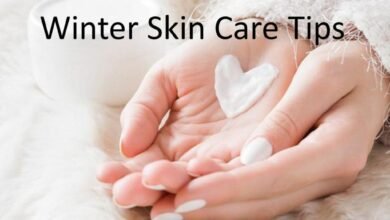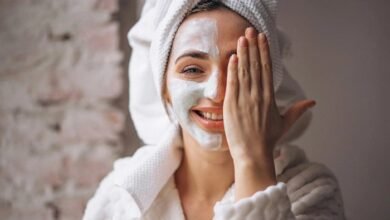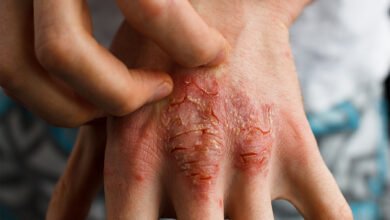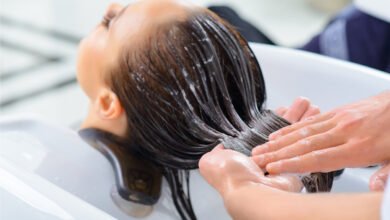7 Dos and Don’ts for Teen Acne

Unveiling the Secrets to Clear, Glowing Skin
The teenage years are a time of self-discovery and growth, but for many adolescents, it’s also a period marked by the unwelcome arrival of acne. Acne, often perceived as a rite of passage, can be a source of frustration and embarrassment. However, with the right approach, you can effectively manage and treat teen acne. In this article, we’ll explore 7 dos and don’ts that will guide you on your journey to achieving clear, glowing skin.
The Dos
1. Maintain a Consistent Skincare Routine
Acne-prone skin benefits from a consistent and gentle skincare regimen. Start with a mild cleanser, followed by a non-comedogenic moisturizer. Regular cleansing helps remove excess oil and prevent clogged pores.
2. Use Topical Acne Treatments
Over-the-counter acne treatments containing ingredients like salicylic acid or benzoyl peroxide can be highly effective in combating acne. These products can help reduce inflammation and prevent breakouts.
3. Keep Your Hands Off
It’s tempting to pop pimples, but this can lead to scarring and infection. Avoid touching your face, as this can transfer bacteria and oil to your skin. If you must pop a pimple, do it the right way to minimize damage.
4. Maintain a Healthy Diet
A balanced diet can work wonders for your skin. Incorporate foods rich in antioxidants, such as fruits and vegetables, and limit sugary or greasy foods. Staying hydrated is also essential for healthy skin.

5. Manage Stress
Stress can exacerbate acne. Find stress-relief strategies that work for you, whether it’s exercise, mindfulness, or hobbies. Reducing stress levels can help minimize breakouts.
6. Change Pillowcases and Bedding
Regularly changing your pillowcases and bedding can prevent the accumulation of dirt and oil on your sheets, reducing the risk of breakouts.
7. Consult a Dermatologist
If over-the-counter treatments don’t yield the desired results, consider consulting a dermatologist. They can prescribe medications or offer specialized treatments tailored to your skin’s needs.
The Don’ts
1. Don’t Overwash Your Face
While maintaining a skincare routine is essential, overwashing your face can strip it of natural oils and worsen acne. Stick to a gentle cleansing routine twice a day.
2. Avoid Harsh Scrubs
Avoid abrasive scrubs and harsh exfoliants, as they can irritate the skin and exacerbate acne. Opt for exfoliants with mild ingredients like alpha-hydroxy acids.
3. Don’t Squeeze Pimples
Squeezing pimples can cause infection, scarring, and prolonged healing time. It’s best to leave them alone or consult a dermatologist for proper extraction.
4. Stay Away from Heavy Makeup
Heavy makeup can clog pores and worsen acne. Choose non-comedogenic and oil-free makeup products to reduce the risk of breakouts.
5. Don’t Pick at Your Skin
Picking at your skin can lead to inflammation, infection, and scars. Keep your hands off your face and let the acne treatments do their job.
Conclusion
Dealing with teen acne can be challenging, but following these dos and don’ts will set you on the path to clearer, healthier skin. Remember, everyone’s skin is unique, so it may take some trial and error to find the right approach for you. If in doubt, consult a dermatologist who can provide personalized guidance and treatments.
FAQs:
Q1: Can diet affect acne?
A1: Yes, diet can play a significant role in acne development. Consuming sugary or greasy foods can lead to increased breakouts. Opt for a balanced, skin-friendly diet.
Q2: Are natural remedies effective for treating teen acne?
A2: While some natural remedies may help, it’s essential to consult a dermatologist for severe cases. Over-the-counter and prescription treatments are often more effective.
Q3: How often should I change my pillowcases?
A3: It’s a good practice to change your pillowcases at least once a week, as this can prevent the accumulation of dirt and oil on your bedding.
Q4: What’s the best way to manage stress for acne-prone teens?
A4: Stress management varies from person to person. Activities like exercise, meditation, and pursuing hobbies can help reduce stress and, consequently, acne.
Q5: Can acne be a sign of an underlying health issue?
A5: In some cases, acne may be linked to hormonal imbalances or other health concerns. If you suspect this, consult a healthcare professional for further evaluation.
Incorporating these dos and don’ts into your daily routine can make a significant difference in your battle against teen acne. Remember that patience is key, and with the right approach, you can achieve the clear and glowing skin you desire.
For more useful content, visit us.










